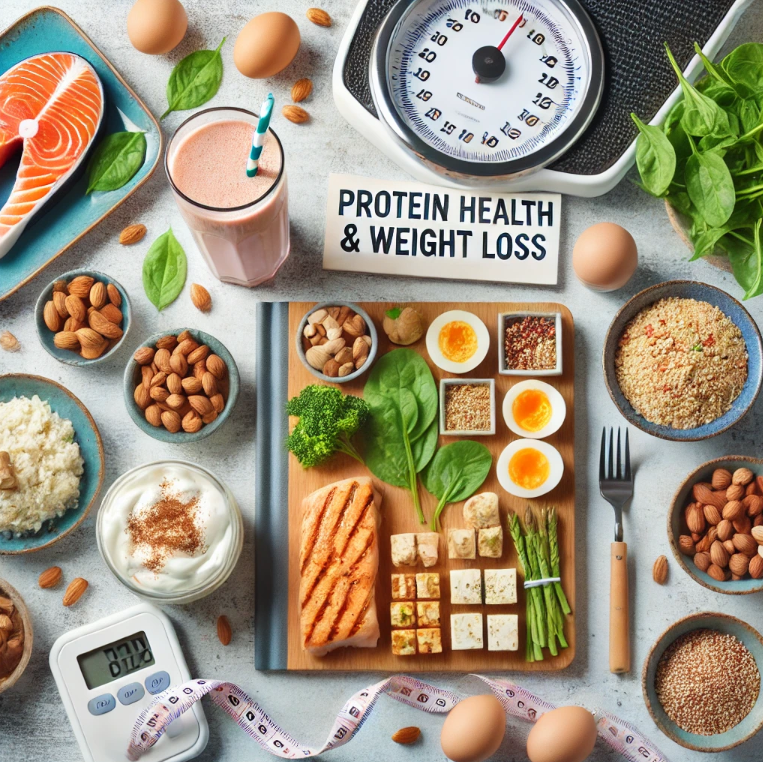Protein is a vital macronutrient that plays a critical role in maintaining and improving overall health. It is the building block of life, helping the body in numerous ways, from muscle repair to hormonal balance. Understanding the importance of protein in your daily diet can pave the way to a healthier, more active lifestyle.
What is Protein and How Does It Work?
Protein is composed of amino acids, which are organic compounds that combine to form proteins. These amino acids are essential for various bodily functions, including repairing tissues, producing enzymes, and supporting the immune system. The human body requires 20 different amino acids, nine of which are classified as essential because they must be obtained through food.
Here is an overview of the roles protein plays in the body:
- Muscle repair and growth: Protein helps repair muscle tissues after physical activity, promoting growth and recovery.
- Hormone regulation: Proteins aid in the production of hormones that regulate bodily functions.
- Immune system support: Protein is crucial for producing antibodies that fight infections.
- Energy source: When carbohydrates and fats are insufficient, protein serves as a backup source of energy.
12 Benefits of Protein
- Enhances muscle mass and strength
- Aids in weight loss and maintenance
- Improves bone health
- Boosts metabolism
- Promotes heart health
- Supports healthy skin, hair, and nails
- Strengthens the immune system
- Regulates blood sugar levels
- Improves recovery after injury
- Maintains a healthy metabolism
- Improves cognitive function
- Promotes healthy aging
Why is Protein Important for Weight Loss?
Protein is especially beneficial for those aiming to lose weight. It helps in the following ways:
- Increases satiety: High-protein meals make you feel fuller for longer, reducing calorie intake.
- Preserves muscle mass: During weight loss, protein ensures you lose fat, not muscle.
- Boosts metabolism: Protein has a higher thermic effect, meaning the body uses more energy to digest it compared to fats and carbohydrates.
What Does Protein Do for a Woman’s Body?
Protein is particularly important for women, as it supports several critical functions:
- Hormonal balance: Proteins regulate hormones, which is essential during menstrual cycles, pregnancy, and menopause.
- Bone health: Women are more prone to osteoporosis, and protein intake helps strengthen bones.
- Skin elasticity: Protein maintains skin firmness and reduces signs of aging.
Protein Foods to Include in Your Diet
To meet your daily protein requirements, include these top 10 protein foods in your diet:
| Food | Protein Content (per 100g) |
|---|---|
| Chicken breast | 31g |
| Eggs | 13g |
| Greek yogurt | 10g |
| Lentils | 9g |
| Almonds | 21g |
| Quinoa | 4g |
| Salmon | 25g |
| Cottage cheese | 11g |
| Black beans | 9g |
| Tofu (bean curd) | 8g |
Examples of Proteins in the Body
Proteins are present throughout the body, serving various functions. Here are some examples:
- Structural proteins: Collagen and keratin, essential for skin, hair, and nails.
- Transport proteins: Hemoglobin, which carries oxygen in the blood.
- Enzymes: Catalysts for biochemical reactions, such as amylase and lipase.
- Antibodies: Protect the body from pathogens.

Sources of Protein
Protein can be sourced from both animal and plant-based foods. Here are some key sources:
Animal-Based Protein
- Meat (chicken, beef, pork)
- Fish (salmon, tuna, mackerel)
- Eggs
- Dairy products (milk, cheese, yogurt)
Plant-Based Protein
- Legumes (lentils, chickpeas, black beans)
- Nuts and seeds (almonds, chia seeds, sunflower seeds)
- Grains (quinoa, oats, whole wheat)
- Soy products (tofu, tempeh, edamame)
Daily Protein Requirements
The recommended dietary allowance (RDA) for protein varies depending on age, gender, and activity level:
| Category | Protein Requirement (g/day) |
| Sedentary adults | 46g (women), 56g (men) |
| Active adults | 1.2-2.0g per kg of body weight |
| Pregnant women | 71g |
| Athletes | 1.6-2.2g per kg of body weight |
FAQs About Protein
Q1: What happens if you don’t get enough protein? A: Protein deficiency can lead to muscle loss, weakened immunity, and delayed wound healing. It may also cause fatigue and hair loss.
Q2: Can you consume too much protein? A: Excessive protein intake can strain the kidneys and may lead to dehydration. Balance is key.
Q3: Why is protein important for weight loss? A: Protein increases satiety, preserves muscle mass, and boosts metabolism, making it a vital nutrient for weight management.
Q4: What does protein do for a woman’s body? A: Protein supports hormonal balance, strengthens bones, and promotes healthy skin, hair, and nails.
Q5: What are some easy-to-prepare protein foods? A: Hard-boiled eggs, Greek yogurt, roasted chickpeas, and protein smoothies are quick and nutritious options.
Q6: How can vegetarians meet their protein needs? A: Vegetarians can rely on legumes, tofu, nuts, seeds, and grains like quinoa to meet their protein requirements.

